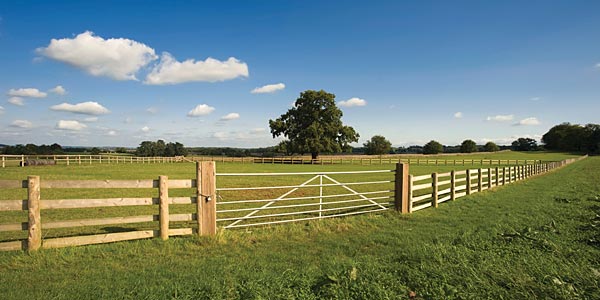As the weather warms up, Virginians are finalizing their outdoor improvement plans. Whether you're installing a swimming pool, creating a farm, or upgrading your backyard, understanding Virginia’s Fence Law is crucial. These laws determine who is responsible for the cost and maintenance of fences and outline requirements for specific applications like pools, farms, and property boundaries. Fence regulations in Virginia can be complex, with rules varying significantly by locality. This guide will help you navigate the state's fence law, covering essential statutes, key responsibilities, and how to ensure compliance with local ordinances.

Contents
What Is Virginia Fence Law?
Virginia's Fence Law encompasses a series of regulations governing the construction, maintenance, and use of fences. The statutes address different types of fences, including:- Swimming Pool Fences: Designed for safety and compliance with local ordinances.
- Agricultural Fences: Required for containing livestock and protecting property boundaries.
- Boundary Fences: Shared between neighbors and governed by unique cost-sharing rules.
Fence Laws for Swimming Pools
Understanding Swimming Pool Requirements
Virginia Code § 15.2-921 outlines regulations for fences around swimming pools, with safety as the primary goal. A swimming pool fence must:- Be at least four feet tall.
- Have a design that prevents children from climbing or slipping through.
- Include gates that are lockable and securely fastened at least four feet above ground.
- Be constructed within five feet of the pool’s edge and extend to within two inches of the ground at the base.
Penalties for Non-Compliance
Failing to comply with pool fencing ordinances can result in significant penalties. Violations may incur fines of up to $300 per day or even jail time of up to 30 days. Each day the violation persists can be treated as a separate offense, making timely compliance essential.Agricultural Fence Laws
Fence In vs. Fence Out
Virginia's agricultural fence law divides counties into "Fence In" and "Fence Out" jurisdictions, a distinction rooted in 17th-century English common law.- Fence In Counties: Landowners are required to keep livestock contained within their property.
- Fence Out Counties: Landowners who wish to keep livestock off their property must build their own fences.
Lawful Fences for Livestock
According to Virginia Code § 55-299, a "lawful fence" for livestock must meet specific standards:- Be at least five feet tall, including any mounds or ditches.
- Use materials like barbed wire, boards, or planks firmly fixed to posts spaced no more than 16 feet apart.
- Be constructed according to generally accepted fencing practices.
Boundary Fence Laws
Who Pays for a Boundary Fence?
Boundary fences—those that separate two adjoining properties—are subject to shared cost responsibilities in many cases. Virginia law allows one landowner to compel their neighbor to share in the construction or maintenance costs of a boundary fence. However, the situation may vary based on local ordinances and the existing relationship between the neighbors. For example:- If both neighbors use the fence, they typically share costs equally.
- If only one party benefits from the fence, they may bear the full financial responsibility.
Legal Obligations for Landowners
Virginia Fence Law distinguishes between landowners and tenants. The statutes apply exclusively to landowners, meaning that property owners leasing their land to farmers or tenants should clarify fencing responsibilities in their lease agreements.Why Fence Laws Are Complex
The complexity of Virginia’s Fence Law lies in its intersection of state statutes and local ordinances. While the state provides a general framework, localities often enforce additional rules tailored to their needs. These variations make it essential to:- Consult Local Regulations: Check with your local government for specific fencing requirements in your area.
- Hire Knowledgeable Contractors: Work with a fence contractor familiar with Virginia’s laws to ensure your project meets all legal standards.
- Seek Legal Advice: For disputes or complex scenarios, consult an attorney with experience in property law.
Pool Fence Compliance
To avoid penalties and ensure safety, homeowners should:- Choose a reputable contractor to build a compliant pool fence.
- Regularly inspect the fence for damage or wear.
- Install self-latching gates to prevent unauthorized access.
Managing Agricultural Fences
Farmers and rural property owners should:- Determine whether their county is a "Fence In" or "Fence Out" jurisdiction.
- Use durable materials like barbed wire or treated wood to meet lawful fence standards.
- Document agreements with neighbors to clarify cost-sharing responsibilities.
Boundary Fence Agreements
For shared fences between neighbors:- Discuss the project upfront and agree on costs before construction begins.
- Put the agreement in writing to avoid future disputes.
- Work with a contractor who can provide clear estimates and timelines.
Why Virginia Fence Law Matters
Understanding Virginia’s fence law is essential for property owners planning fence projects. These laws impact everything from cost-sharing arrangements to compliance with safety standards, and failing to adhere to them can result in fines, disputes, or other legal challenges. Whether you’re enclosing a pool, protecting livestock, or defining property boundaries, taking the time to understand these regulations ensures a smoother process and greater peace of mind. Virginia’s fence laws reflect the diverse needs of the state’s communities, balancing safety, property rights, and agricultural practices. While the regulations can be complex, knowing the basics—and consulting professionals when needed—can make your fencing project a success. Are you planning a fence installation? Contact an experienced fence contractor to navigate Virginia’s fence laws and create a solution tailored to your needs.


